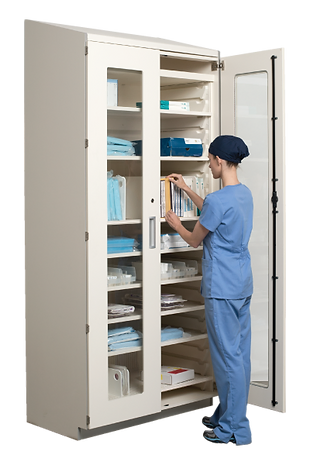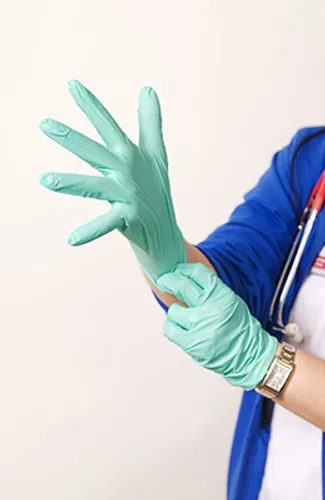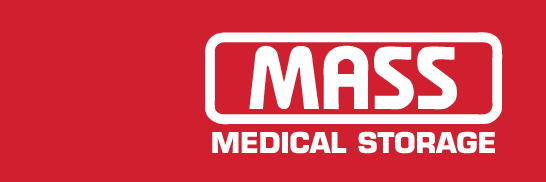Proper infection control procedures are a key part of keeping your MASS™ Medical Storage cabinets and carts in top condition. Because of the sensitive nature of the medical items that are stored in our products, MASS™ Medical Storage products should be cleaned on a regular schedule. Even unused cabinets and carts can be contaminated with airborne pathogens, droplets, and organic soil such as blood or other body fluids, indicating the importance of routine infection control procedures.
An important distinction must be made between cleaning and disinfecting. Cleaning consists of the physical removal of dust, blood, body fluids, and dirt. Disinfecting kills germs and is therefore a critical part of infection control. Rinsing between steps is also necessary, since residual soap or detergent reduces the power of the disinfectant. Cabinet and cart surfaces should always be cleaned before disinfection, because dirt or grime lowers the chemical’s effectiveness by covering germs and compromising the disinfectant.
The life of your MASS™ Medical Storage carts and cabinets will be prolonged with proper use and care. Following these guidelines will help protect your patients from infection and help improve your overall infection control.

MASS™ Medical Storage recommends using quaternary ammonium compounds for regular disinfecting.
This low-level disinfectant is highly recommended for general housekeeping of medical storage cabinets and other non-critical items.
Quaternary ammonium compounds are bactericidal, fungicidal, and virucidal against lipophilic (enveloped) viruses.
At hospital-strength concentration, quaternary ammonium compounds can destroy HIV, hepatitis B and C, influenza, parvovirus, and more.
Ensure maximum effectiveness by adhering to the disinfectant manufacturer’s recommended contact time.
As with cleaning, bleach is not a recommended disinfectant, as surfaces exposed to bleach will stain and oxidize.


Do not use abrasive cleaning materials such as steel wool, powder products, or synthetic abrasives.
Should it be necessary to scrub your stainless steel cart or cabinet surface, be sure to wipe parallel to the direction of the glazing, using as little pressure as possible.
Bleach is harmful to all cart and cabinet surfaces, but harms stainless steel in a harsher, quicker manner and its use should be carefully avoided.
Please refer to your owner’s manual to determine if bleach can be used on components such as bins, wire baskets, and scope holders.
Effective against most fungi, bacteria, and lipophilic viruses
Stable, non-irritating, effective at high temperatures and high pH levels.
Can be compromised with organic matter, hard water, and soap/detergents.
Chlorine Compounds/Hypochlorites –
NOT RECOMMENDED
Effective against viruses, bacteria, fungi, parasites, and some spores
Inexpensive, short contact time, broad spectrum of effectiveness.
Unstable, corrosive, toxic.
70% Ethyl Alcohol – NOT RECOMMENDED
Effective against bacteria, some viruses, and fungi
Fast-acting, no residue.
Rapid evaporw2on limits contact time, highly flammable, corrosive.
Phenols
Effective against some viruses, bacteria, and fungi
Good for general uses, wide range of effectiveness.
Mildly corrosive, unstable, toxic, more expensive than
comparable QAC.
